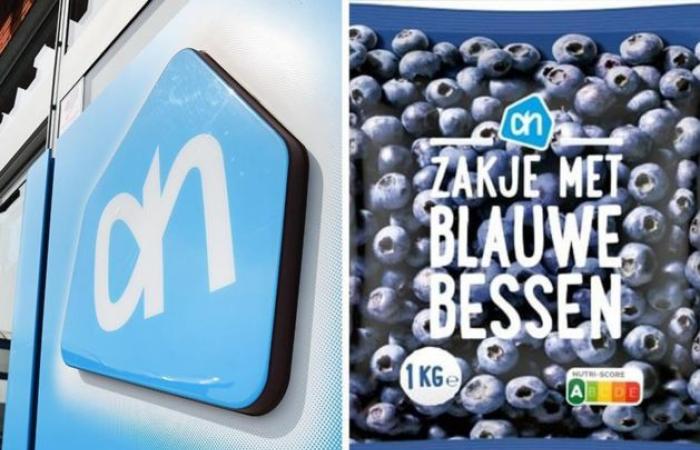
In consultation with the FASFC, Albert Heijn has decided to immediately remove blueberries from the Albert Heijn brand from the stores. The product may possibly be contaminated with hepatitis A. The Dutch health institute RIVM takes into account hundreds of hepatitis A infections. At least twelve people in the Netherlands have been infected with hepatitis A after eating frozen blueberries, two of them are in hospital. No cases have yet been reported in our country.
This concerns the frozen product “AH Bag with blueberries” from the Albert Heijn brand, with all minimum expiration dates (THT) up to and including 14/04/2026. The sales period was October 2024 to January 13, 2025. The type of packaging: plastic bag, weight: 1 kg.
Consumption can potentially cause health problems. In case of health complaints, it is recommended to consult your doctor. Albert Heijn urgently requests customers not to eat the product and to return it to an Albert Heijn store. It will be refunded there.
READ ALSO. Expert warns about hepatitis virus: “We are now noticing one variant more frequently, and the culprit is Italian sausage”
Hepatitis A is a liver inflammation caused by the hepatitis A virus. The symptoms are usually fatigue, mild fever and sometimes upper abdominal pain and nausea.
-At least twelve people in our northern neighbors have been infected with hepatitis A after eating frozen blueberries. Two of them are in hospital, a spokesperson for the Dutch National Institute for Public Health and the Environment confirms The Telegraph.
Precaution
“This only concerns the frozen blueberries that are in a bag, not those in boxes or the fresh berries,” spokeswoman Ann Maes of Albert Heijn Belgium emphasizes to our editors. “A number of infections have been identified in the Netherlands, after which it was discovered that they may be linked to eating blueberries.”
“In Belgium this is a precautionary measure, whereby we take the same product from the same Polish supplier from the shelves,” says Maes. “We are currently not aware of a cluster of infections in Belgium, we have not received any reports of sick people in our country. Of course, we will never deliberately sell products that make people sick.”


